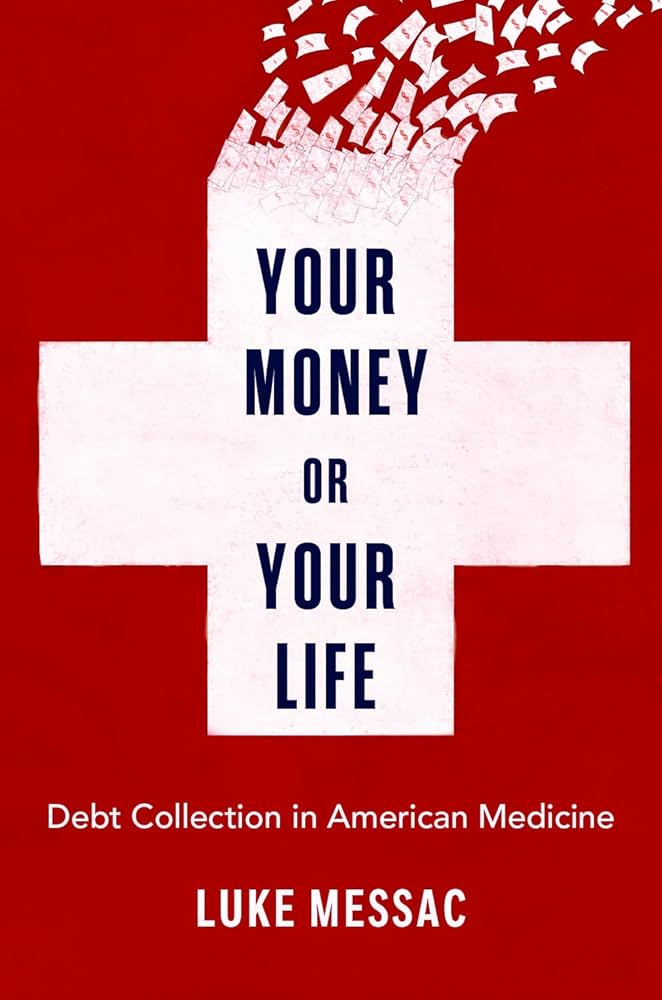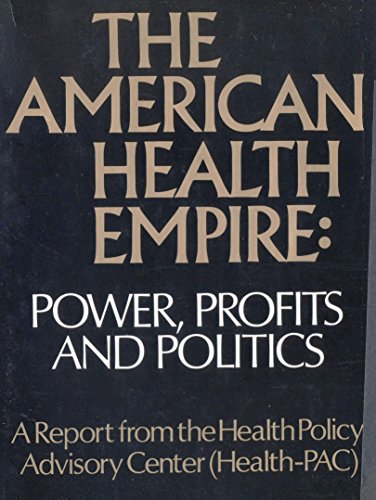Two decades ago, reporters at the New Haven Advocate and the Wall Street Journal started to dig into the billing practices of Yale-New Haven Hospital. Among their findings: The hospital routinely filed lawsuits to collect debts from uninsured and underinsured patients — including its own employees. It garnished patients’ wages and seized their bank accounts. It issued body warrants for patients who failed to appear at civil hearings. It placed liens on patients’ houses. An activist Yale alum found that nearly one in twelve owner-occupied homes in New Haven had medical liens placed on them by YNHH during the period between 1994 and 2003.
Twenty years after those exposes, has the terrain improved for Americans coping with medical debt? Yes — but not nearly enough. Several states have enacted laws constraining hospitals’ ability to file lawsuits, especially for penny-ante debts. A few hospital systems have been shamed into dialing back their debt-collection operations. Most prominently, nonprofit organizations and local governments have learned to buy and retire large tranches of medical debt. But none of these reforms reach to the fundamental problem: Too many people are being saddled with medical costs that they just can’t pay.
In Your Money or Your Life: Debt Collection in American Medicine (Oxford University Press, 2024), the emergency physician Luke Messac casts a cool analytic eye on the structural conditions that have prompted hospitals to act as debt collectors (or to farm their debts out to collection agencies). But he also writes in a more personal vein, examining his own potential complicity in the debt crisis.
When the New Haven exposes were published circa 2003, most medical debt was incurred by patients with no insurance at all. Today, fifteen years after the arrival of the Affordable Care Act, the problem falls heavily on people who do have coverage. Deductibles, co-payments, and narrow networks mean that even people who spend hundreds of dollars a month on insurance premiums can easily find themselves saddled with massive out-of-pocket bills. “If health insurance never brought true security,” Messac writes, “the turn toward high-deductible plans left behind even the pretense of protection.”
How did we get here? The U.S. health finance system is such a complex beast that we could approach that question from ten different angles. Maybe the key moment came in the 1970s, when hospitals began to inflate their core list prices — their “chargemasters” — so they could more comfortably offer purported discounts to private insurers. Maybe the pivotal change came in the early 1990s, when a few collection agencies discovered that they could profitably specialize in medical debt. By 1998, the largest of these agencies, NCO Financial Systems, had annual revenue of more than $100 million. According to one debtors’ advocate quoted by Messac, certain hospitals liked to invest in aggressive collections not so much because they hoped to recoup funds, but because they believed a reputation for debt collection would keep low-income patients from seeking care at their facilities in the first place. “You can’t squeeze blood out of a turnip,” said Dickie Scruggs, “but you can keep the turnip from coming back.”
As a bedside physician, Messac has a personal stake in the debt crisis. In 2019, during his residency in emergency medicine, he decided to look at the behavior of the three hospitals where he was employed. He spent hours poring through courthouse databases, reviewing the dunning letters that his hospitals and their collection agencies had sent to patients. Some patients replied that they lived on meagre incomes from Social Security disability; others said they were shocked by the size of the bills they faced after short visits to the emergency room; others said they’d been misled into believing that all their care fell within their insurance plan’s network. These court records cast Messac’s day-to-day labors in a new light:
To my horror, as I scrolled, I was finding out that for many patients, the most lasting impact of their visit to the ED was not symptomatic relief or diagnosis but, rather, financial disaster. The gentler my bedside manner, the more I would appear as part of the con to the patient who ended up in a courtroom. They would likely not remember me at all; if they did, I might be one among the many people who had conspired, with the lawyers and judges and collection agencies, to squeeze them for whatever profits I could.
Messac acknowledges that individual physicians like himself have little power over hospitals’ prices or debt-collection practices. For that matter, hospitals themselves can’t be wholly blamed for the medical debt crisis, embedded as they are in a health-finance system where private insurance companies walk away with the lion’s share of profit. Messac quotes Melissa Jacoby, a law professor at the University of North Carolina who has long studied medical debt, as arguing that the “hospital misbehavior model” of medical debt reform is badly incomplete.
What kinds of reform — addressing not only hospitals’ behavior but the whole lurching apparatus of U.S. health care — might solve the medical debt crisis? Messac sketches several avenues of reform, at increasing levels of ambition:
Cushioning the effects of medical debt by removing it from credit reports: This strategy might seem like low-hanging fruit, but advocates have struggled with it. The Biden administration enacted a rule that forbade medical debts from figuring into credit scores — but a federal court has struck down that rule. Worse, a few weeks ago the Trump administration declared that state laws that remove medical debt from credit reports should be considered invalid and unconstitutional.
Putting a leash on hospitals’ debt-collection practices: Over the last decade activists have achieved hard-won, small-scale policy changes at the state level. States such as Connecticut, Colorado, and Maryland have enacted reforms that cap interest rates on medical debt and restrict hospitals’ ability to pursue aggressive collections, especially in cases where the debts are relatively small.
Buying and retiring debt from medical-debt brokers: The last decade has also seen the rise of Undue Medical Debt (formerly known as RIP Medical Debt), a nonprofit organization that purchases tranches of medical debt — typically for pennies on the dollar — and then forgives them. Municipal and state governments including Pittsburgh, San Antonio, and Illinois have collaborated with Undue Medical Debt and similar groups to dissolve more than $15 billion worth of obligations.
Straight-up canceling medical debt: A more radical approach would be to declare existing medical debts null and void — either by pressuring hospitals to do so or by passing legislation. That’s the ethos of the Debt Collective, an organization that has recently expanded its focus from student loans to the world of medical debt. A bill introduced last year by Rep. Ro Khanna and Sen. Bernie Sanders would make it illegal to attempt to collect existing medical debts and would remove all medical debt from credit reports.
Preventing medical debt by enforcing nonprofit hospitals’ duty to offer free and discounted care to low-income patients: At an intermediate level is the nascent effort to force nonprofit hospitals — especially the major academic medical centers — to take seriously their obligations to provide what is known as “charity care.” As Messac explains, there has always been an expectation that nonprofit hospitals will provide a certain level of free care and public benefit in exchange for their tax-exempt status. The rules surrounding that obligation waxed and waned over the course of the twentieth century, as statutes and IRS regulations changed. But they became somewhat tougher in 2010, with the passage of the Affordable Care Act. Sen. Charles Grassley, a Republican who generally opposed the ACA, inserted a provision that requires nonprofit hospitals to develop and publicize Financial Assistance Policies, or FAPs, for their low-income patients.
Grassley’s law does not spell out what income threshold hospitals must use to define eligibility for their FAPs, nor does it dictate how generous hospitals must be to the patients who qualify. Even the one hard requirement in Grassley’s language — that hospitals inform eligible patients of the existence of their FAPs — has not consistently been followed. Messac cites a 2022 New York Times investigation of a Washington state hospital system that persistently failed to inform low-income patients that they could apply for charity care.
Advocates are trying to make the Grassley rule more meaningful. The nonprofit organization known as Dollar For assists patients with submitting the paperwork for financial assistance. This year, the Lown Institute published a database of more than 2500 public and nonprofit U.S. hospitals’ financial assistance policies. They found wide discrepancies in hospitals’ practices, even within the same city.
Preventing medical debt by abolishing copayments and deductibles: In 2025, even gold-plated high-premium insurance policies can leave patients on the hook for many thousands of dollars in out-of-pocket costs. The idea that patients require “skin in the game” to turn them into cost-conscious, price-sensitive shoppers has always been sketchy — especially given that it’s almost impossible to learn ex ante what a course of medical care will cost.
The LOOP Coalition is a nascent effort to fight for state and federal laws restricting copayments. Right now these policies are moving in exactly the wrong direction. Trump’s HHS has finalized a rule that would allow out-of-pocket maximums to increase by as much as 4.5 percent in 2026.
Root-and-branch reform: A single-payer system. We could make all of these questions moot if we tore down the entire edifice of private insurance and established a universal single-payer system, free at the point of care.
In the political climate of 2025, that goal might sound outlandish. Only sixteen Senators have co-sponsored the current iteration of Bernie Sanders’s Medicare for All bill. But things can change quickly. Messac relates a story that the Canadian novelist Margaret Atwood told in her Payback: Debt and the Shadow Side of Wealth (2008). When Atwood’s younger brother was born in Montreal in 1937, the hospital refused to discharge her mother for several days until her father received his paycheck and was able to pay the bill ($99 Canadian). That sort of “hospital detention” was a taken-for-granted practice in Depression-era Quebec — but within thirty years, popular movements won single-payer systems throughout Canada. Since the early 1960s, laboring mothers in Quebec have had no out-of-pocket charges at all.
The U.S. health finance system is broken, and it’s about to get worse. But the Canadian experience reminds us that things can change drastically over the course of a generation. More than half of the U.S. population supports Medicare for All. With enough organizing, the public might someday — sooner than we might think — build enough power to make universal insurance a reality. As Messac writes, “No one has fated hospitals in America to be palaces of plunder. They can be houses of healing.”


